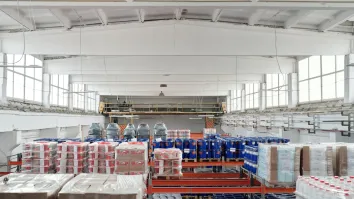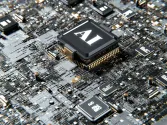
Landed houses offer a solution to housing backlogs hitting millennials
Millennials in urban areas are experiencing a 79% occupancy shortage.
In stark contrast to countries like Singapore, China, and America, where housing backlogs are almost non-existent, Indonesia is facing a high gap between houses built and houses needed. This shortage is particularly acute among the country's young population or the millennial generation, who make up the next-generation property buyers, according to Lamudi.co.id CEO Mart Polman. To address this issue, developers are now focusing on developing homes that meet the unique needs and preferences of millennials.
Despite the high-interest rate set, for example, by Bank Indonesia reaching 5.5%, Lamudi.co.id has observed that property consumers remain resilient. In December 2022, online property searches increased by 9%, indicating a sustained interest in property despite the challenging economic climate.
Polman noted that the next generation of property buyers are the millennial and Gen-Z generations, who make up 60% of property seekers on their platform.
“Within this group, landed houses are the dominant search target, accounting for 76% of searches in the period between June to December 2022,” Polman told Real Estate Asia.
This preference for landed houses is driven by the younger generation's desire for homes that meet their needs and preferences, such as having an effective and efficient area, and connected to the internet to facilitate ease of living.
Focus on landed houses
Real Estate Indonesia (REI), an organisation representing property developers, consultants, and agents in Indonesia, said that developers are currently focusing on landed houses. Around 79% of property development in Indonesia today consists of landed houses with a price range of $ 19,134 (IDR 300m) to $ 63,780 (IDR 1b). This residence, although relatively smaller, is effective both in terms of interior and facilities.
“The most important thing is how everything is connected to the internet. Especially when all the elements in the house, such as electronic devices, can be ordered via a smartphone. Therefore, the current property market share of 65% is millennials," REI Chairman Paulus Totok Lusida told Real Estate Asia.
A house with an effective and efficient area is perfect for millennial characters who really like leisure and traveling, especially since they are part of the generation who do not like to do household chores. "Even if there are millennials who like to take care of the house, the percentage is very small, maybe only 5%. Therefore, the design is more important than the area. You could say they like it more like they live in a hotel," said Totok.
Meanwhile, developers are also providing convenience in payments. "For example, we make it possible for them to pay interest first, for example for the first five years, then only after 10 years they can repay the principal. That way, they feel less burdened in terms of costs,” he added.
This is part of REI's current mission considering that conditions in Indonesia are different from countries. According to Totok, the housing backlog reached around 12.7 million, of which 47% was dominated by the young population.
Overcoming backlogs
Vice President Director of Bank Tabungan Negara (BTN), Nixon L.P Napitupulu, highlighted that 5.8 million millennials currently cannot afford to own a house, with a 79% housing shortage experienced by millennials who are in urban areas.
As a state-owned enterprise engaged in the banking sector to support housing sector financing, BTN has developed a housing credit program to make it easier for the millennial generation to have their first home.
Nixon said that there are two programmes that are currently BTN's flagship. First, BTN has a program called Graduated Payment Mortgage (GPM), a tiered instalment system through a product called "KPR BTN Gaess." "This product is indeed targeting the millennial generation where installment payments in the first few years are lighter," said Nixon.
Second, BTN also launched "KPR Rent to Own" for segments of society who have not been able to prepare a down payment or buy a house in a location close to their place of work, making them hesitant to buy a house. "With this product, people can pay rent every month while at the same time allocating some of their savings for future home purchases," said Nixon.
In 2021, the BTN Gaess KPR program distributed up to 203 housing units to millennials. Meanwhile, until June 2022, the realisation of BTN Gaess KPR has reached 946 units, with a value of more than $ 24.66m (IDR 382b). For the Rent to Own KPR product, which was just released in the third quarter of 2022, BTN is targeting more than 1,000 registrants in the first year this product is launched.

















 Advertise
Advertise





